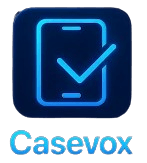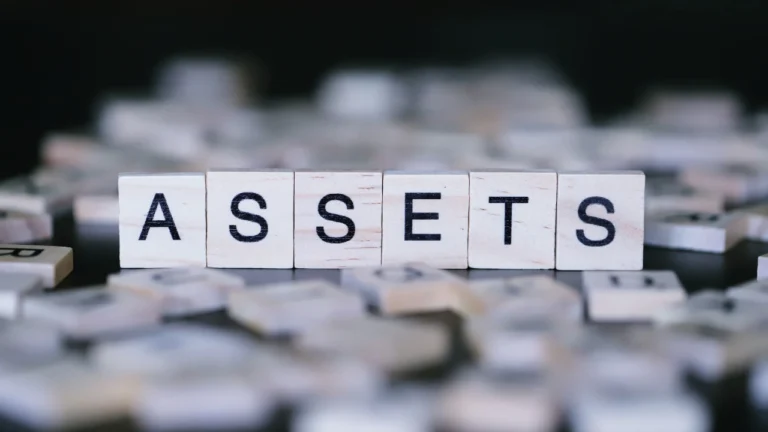
Collection Service Center Debt Collector Harassment?
Is Collection Service Center (CSC) calling you? Stop Collection Service Center phone harassment. Do they threaten to take legal action or garnish your wages? Are they calling you at all hours or several times a day? Debt collectors are only allowed to call within reasonable hours and not more than a certain number of times within a seven day period, according to federal regulations. Are they telling your family and neighbors that you owe a debt? If so what they are doing is illegal and needs to stop. You have the legal right to stop CSC phone harassment. Consulting a lawyer can help you understand your rights and options if you are experiencing harassment. If a collection agency violates the FDCPA, you may be eligible to receive up to $1000.00 in statutory damages, along with covering your attorney’s fees. You may also be able to recover court costs and attorney’s fees if you win a lawsuit against a debt collector for harassment.
Introduction to Debt Collection
Debt collection is the process by which debt collectors or debt collection agencies attempt to recover money that individuals or businesses owe on overdue accounts. Whether the debt is from credit cards, medical bills, or other loans, collectors are often hired by the original creditor or purchase the debt outright. Because debt collection can sometimes lead to aggressive or unfair tactics, the Fair Debt Collection Practices Act (FDCPA) was established to regulate debt collection practices and protect consumers from harassment. Understanding how debt collection works and what laws apply is crucial for anyone who owes a debt, as it empowers you to recognize when a collector crosses the line and to take steps to protect your rights. By knowing your rights under the collection practices act FDCPA, you can ensure that debt collectors follow the law and treat you fairly throughout the collection process.
Is Collection Service Center a Scam?
According to the Better Business Bureau website, Collection Service Center has been in business for 43 years. While CSC is a legitimate business, consumers should always be cautious of debt collection scams and verify the legitimacy of any collection agency contacting them. There have been 8 complaints filed against CSC with the BBB.
Read more here: Collection Service Center Better Business Bureau.
Who is Collection Service Center?
Collection Service Center is a third party debt collector and debt collection agency located in New Kensington, Pennsylvania. CSC has been a party to a Federal Court case over 25 times. They have been accused of violating consumer’s rights and illegal and harassing communication tactics to attempt to coerce a payment from the harassed consumer. Debt collector harassment by a debt collection agency can include actions that are considered harassment under the law, such as repeated calls, threats, or deceptive practices.
Address: PO BOX 560 New Kensington, PA 15068
Phone: (724) 337-4595
Collection Service Center Collection Tactics
If Collection Service Center engages in any of the following tactics, you may have a case:
- ➤ Using profanity or abusive language
- ➤ Calling you before 8:00 a.m. or after 9:00 p.m.
- ➤ Calling you multiple times per week
- ➤ Talking to others about your debt
- ➤ Calling your workplace
- ➤ Making personal calls to your workplace without permission
- ➤ Threatening to sue you, harm you, or destroy your credit
- ➤ Making false threats or misleading practices
- ➤ Telling you or anyone else that you’ve committed a crime
- ➤ Calling repeatedly for the wrong person
- ➤ Failing to notify you of your right to dispute the debt
- ➤ Failing to provide required information after first contact with you.
- ➤ Trying to collect more than legally allowed

Collection Service Center Phone Numbers
Are you receiving any harassing phone calls from any of the following numbers?
724-337-4595, 724-543-6520, 724-334-8555, 724-287-4603, 814-946-0854, 724-337-4595, 724-962-2657, 412-561-7600, 814-944-6361, 724-334-8844, 866-683-2732, (724) 337-4595, (724) 543-6520, (724) 334-8555, (724) 287-4603, (814) 946-0854, (724) 337-4595, (724) 962-2657, (412) 561-7600, (814) 944-6361, (724) 334-8844, (866) 683-2732, 7243374595, 7245436520, 7243348555, 7242874603, 8149460854, 7243374595, 7249622657, 4125617600, 8149446361, 7243348844, 8666832732
If the answer is yes, then you are receiving calls from a known CSC number. You may be a victim of CSC phone harassment. If you have been contacted by a debt collector calling from any of these numbers, it is important to document all contacts for your records. Keeping a record of every time a debt collector contacts you is crucial, as repeated debt collector contacts can be evidence of harassment. The list above is not all the numbers that CSC uses. The calls can be from different phone numbers and it still be Collection Service Center calling you. Contact our office right away so we can start the process to stop CSC from calling you illegally. Above all, no one should live with harassment!
Understanding Debt Collection Calls
Debt collection calls are one of the most common ways debt collectors reach out to individuals who owe debts. While it’s legal for collectors to contact you about a debt, there are strict limits on how and when they can call. If you’re receiving multiple calls a day, calls at unreasonable hours, or calls that feel threatening or harassing, you may be experiencing illegal debt collection practices. The FDCPA gives you the right to stop unwanted calls by sending a cease and desist letter to the debt collector. It’s also important to keep a detailed record of every debt collection call you receive, including the date, time, and what was said. This documentation can be vital if you need to take legal action against a debt collector for harassment or other violations. Remember, you have the right to control how and when debt collectors contact you, and you don’t have to tolerate abusive or excessive debt collection calls.
Debt Collection Practices Act
The Debt Collection Practices Act, commonly known as the FDCPA, is a federal law designed to protect consumers from abusive, unfair, or deceptive debt collection practices. This law prohibits debt collectors from engaging in harassment, making false statements, or using deceptive practices to collect debts. The FDCPA applies specifically to third party debt collectors—those who collect debts on behalf of others, not the original creditor. Under this federal law, you have the right to dispute a particular debt, request that a debt collector stop contacting you, and even sue a debt collector in court if they violate your rights. If you believe a debt collector has broken the law, you can report FDCPA violations to the (CFPB) or your state attorney general’s office. Knowing your rights under the debt collection practices act can help you stand up to unwanted calls and protect yourself from illegal collection tactics.
FDCPA Guidelines
The FDCPA sets out clear guidelines that every debt collector must follow when attempting to collect debts. Debt collectors are strictly prohibited from using obscene or profane language, making threats of violence or arrest, or contacting you at unreasonable hours. They cannot make false or misleading statements about the amount you owe or threaten legal action they cannot take. If you request it, a debt collector must stop contacting you, and they are required to provide written validation of the debt, including the amount owed and the name of the original creditor. If a debt collector makes you feel threatened, uses abusive language, or refuses to stop contacting you after you’ve asked in writing, these are serious violations of the FDCPA. Understanding these guidelines can help you recognize when a debt collector is breaking the law and give you the confidence to take action to protect your rights.
Complaints Against Collection Service Center
The following is a sample list of complaints filed against Collection Service Center in the past and can be found on Pacer.gov.
- 🔗 7:11-cv-02602-CS Fearer v.
- 🔗 1:07-cv-04690-CBA-MDG Demelfi v.
- 🔗 8:14-cv-00754-PJM Whitaker v.
- 🔗 1:05-cv-01439-JDT-TAB Crosby v.
- 🔗 8:18-cv-01287-VMC-AAS Short v.

Consumer Rights Law Firm PLLC
Consumer Rights Law Firm PLLC is a law firm that specializes in helping clients who are facing harassment from debt collectors in any form, including telephone communication. Debt collectors may also use electronic communications, such as emails or text messages, and these are regulated under the FDCPA to prevent harassment or deceptive practices. When sending important notices, such as cease and desist letters, to debt collectors, it is recommended to use certified mail with a return receipt to provide proof of delivery and ensure proper documentation. Rather than suffer alone, contact our office to begin the process to stop the Collection Service Center harassment. Our office has been assisting consumers since 2010. We have an A+ rating with the Better Business Bureau.
If you are interested in learning more about how to safeguard yourself and prevent harassment from Collection Service Center call us at (877)700-5790 for immediate assistance or visit our website.
Success Stories
Huge thanks! These guys are the best, I am so happy that I contacted them. I highly recommend them. if you are being harassed by a company that just keeps calling you about an old debt or threatening you. They are very helpful. Thank you so much!!⭐⭐⭐⭐⭐
I ran into several financial hardships over the last few years. Constantly harassed by a company to pay up on fees owed that I wasn’t entirely sure were owed… because I was so overwhelmed. Scott and his crew came to my rescue. I was a bit unsure first wondering if it was a scam.:. But it was not! Scott got my close to $1,000 debt dropped and had the company pay the lawyer fees. I also haven’t received anymore harassing phone calls from the company that was trying to collect the debt. Thank you so much Scott!⭐⭐⭐⭐⭐
Frequently Asked Questions
Why is Collection Service Center calling me?
Collection Service Center may be calling you to collect a debt on behalf of a creditor. They are a third-party debt collection agency that contacts consumers about outstanding accounts.
What constitutes phone harassment by Collection Service Center?
Phone harassment includes frequent or repeated calls, threats, calling before 8 AM or after 9 PM, or continuing to call after you’ve asked them to stop in writing.
Are robocalls from Collection Service Center legal?
Robocalls from Collection Service Center may be illegal if you did not give prior written consent. This could violate the Telephone Consumer Protection Act (TCPA).
Can I stop Collection Service Center from contacting me?
Yes. You can send Collection Service Center a written cease-and-desist letter. Under the FDCPA, they must stop most forms of communication with you after receiving it.
What if I don’t owe the debt Collection Service Center is trying to collect?
If you believe the debt is incorrect, you have the right to dispute it in writing within 30 days of first contact. Collection Service Center must then verify the debt before continuing collection.
Can I take legal action against Collection Service Center for harassment?
Yes. If Collection Service Center violates the FDCPA or TCPA, you may be eligible to sue them and recover damages for phone harassment or illegal collection practices.
How should I document harassment from Collection Service Center?
Keep records of all calls, note call times and what was said, save voicemails, and retain all written communication. This documentation can support your legal claims.
Who can help me stop Collection Service Center phone harassment?
Consumer protection lawyers or firms like Consumer Rights Law Firm PLLC can help you stop the harassment and guide you on your legal rights and options.
How long can Collection Service Center keep calling me?
Collection Service Center cannot harass or abuse you indefinitely. Under the FDCPA, they must stop calling if you request in writing or if the debt is disputed.
Can I report Collection Service Center for illegal phone harassment?
Yes. You can report Collection Service Center to the (CFPB), your state attorney general, or the Federal Trade Commission (FTC) for violations.







